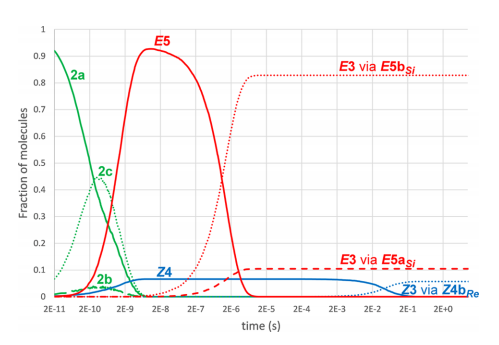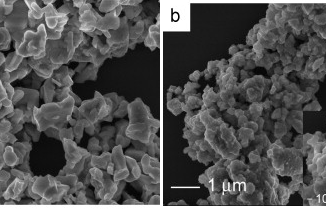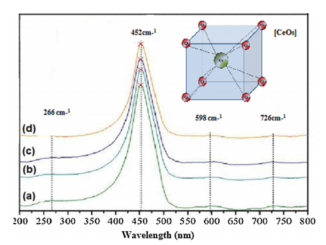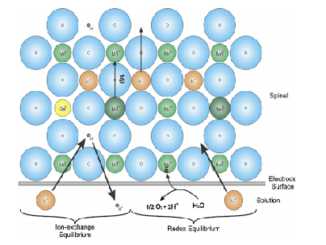
DFT and Kinetic Monte Carlo Study of TMS-Substituted Ruthenium Vinyl Carbenes: Key Intermediates for Stereoselective Cyclizations
Abstract: Mechanistic pathways for the cyclization of 1,5-aknylacetal with N,CHTMS in the presence of Cp- and Cp*RuCl(cod) to afford (Z)- and (E)-(trimethylsilyOvinyl spiroacetals have been calculated. Calculations show the presence of three conformers in equilibrium for the initially formed ruthenium carbenes. Differences in the stabilities and reactivities of the conformers, depending on the use of a Cp or Cp* ruthenium catalyst, are responsible for the favorable active reaction pathways in each case, even though the geometry of the resulting product is the same regardless of the catalyst used. Kinetic Monte Carlo (KMC) simulations with rate coefficients, including tunneling probabilities for the hydride transfer step, were used to model the evolution of reactants, intermediates, and products for all calculated pathways. It was shown that one path is almost exclusively active for each catalyst. Finally, the energetic span model of Kozuch and Shaik was used to calculate the energetic span (SE), the TOF-determining transition state (TDTS), the TOF-determining intermediate (TDI), and the TOF value for each of the feasible mechanistic pathways.
Author(s): Cambeiro, F; Martinez-Nunez, E; Varela, JA; Saa, C
ACS CATALYSIS
Volume: 5 Pages: 6255-6262 Published: NOV 2015
DOI: 10.1021/acscatal.5b01333




